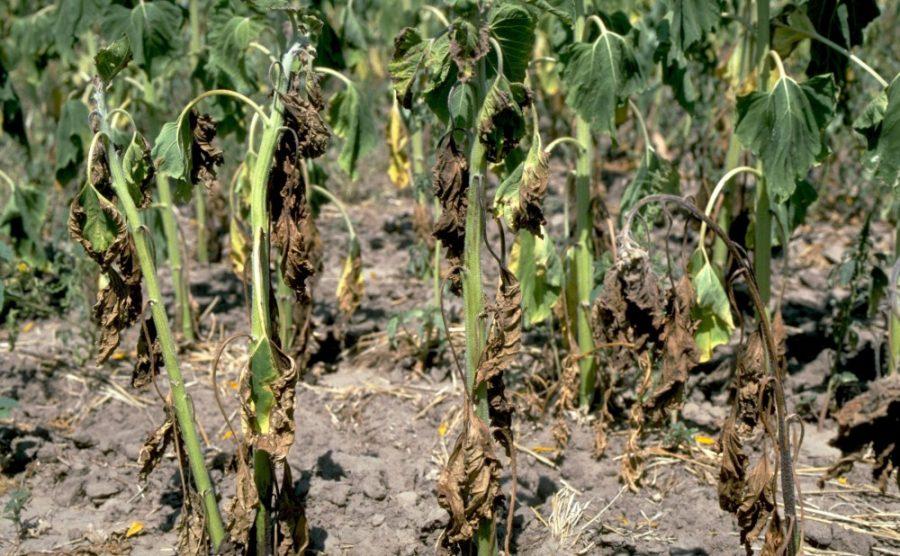While an increase in carbon dioxide concentration may be beneficial to plant growth in isolation, the rise in temperature that comes with it creates problems, according to Russell Monson, a Louise Foucar Marshall professor at UA.
Earth Transformed is a UA science lecture series dedicated to bringing the public up-to-date on Earth’s current climate change issues.
Feb. 8 was the series’ third installment, which was led by Monson.
The focus of the talk served to bring awareness to the role that carbon dioxide plays within Earth’s ecosystems, as well as the harmful effects that its increased presence in the atmosphere has created for life on our planet.
“CO2 is a small molecule with a big attitude,” Monson said. “Its presence in the atmosphere is actually at a relatively low concentration, only about 400 molecules [for every] million, but its got this unbelievable impact that its had on the Earth system.”
Carbon dioxide is one of the most fundamental building blocks for life on Earth. Despite the negative effects we have seen on the natural environment, due to it’s increase in concentration, it is still responsible for the existence of all living things.
“The carbon dioxide actually enters all of the ecosystems here on Earth through the process of photosynthesis,” Monson said.
When undergoing photosynthesis, plants use the energy from the Sun to convert carbon dioxide into sugars.
“These sugars lay at the foundation of basically all food webs on Earth,” Monson said. “Either we eat plants that made the sugars or we eat animals that ate plants that made the sugars.”
Many experiments have been carried out which show that, in an isolated occurrence of increased carbon dioxide concentration, plants have a positive response in both their health as well as their growth capabilities.
These observations lead some scientists to believe that the rise of carbon dioxide levels in Earth’s atmosphere would actually have a positive impact for life on our planet.
One of those being a man by the name of Sherwood Idso, president of the Center for the Study of Carbon Dioxide and Global Change.
It was noted, during the lecture, that Idso said that doubling carbon dioxide content in the atmosphere produces a tremendous “greening of the planet.”
This theory, however, falls short due to its disregard for the rise in temperature, which is caused by the increase of carbon dioxide as well as other greenhouse gases in the atmosphere.
When rising temperatures are taken into account, it has been seen that a number of ecosystems did not respond well. For many farmers, it’s clear to see a decrease in positive yield from their crops.
“When you start showing yield curves for various kinds of crops and the temperature goes up, the yields go down,” said Joaquin Ruiz, dean of the UA College of Science.
Not only do more crops fail, but Ruiz also said that the ones who do make it to harvest tend to produce less protein.
Monson went on to say how occurrences such as decreased snowpacks, as well as drought and increased temperatures, inhibit an ecosystem’s ability to take carbon dioxide out of the atmosphere.
Trends such as these suggest that not only is more carbon dioxide being put into the atmosphere due to human activity, but that increases in global temperatures are causing ecosystems to lose their abilities to balance carbon dioxide levels naturally.
In recent years, global awareness of climate change has increased dramatically.
Researchers are learning about how it is effecting our planet, as well as steps that can be taken to slow down the process.
Surely with the knowledge we have and are continuing to gain about how ecosystems react to these changes will serve to help us find solutions to these pressing problems.
Follow Steve Preston on Twitter.









